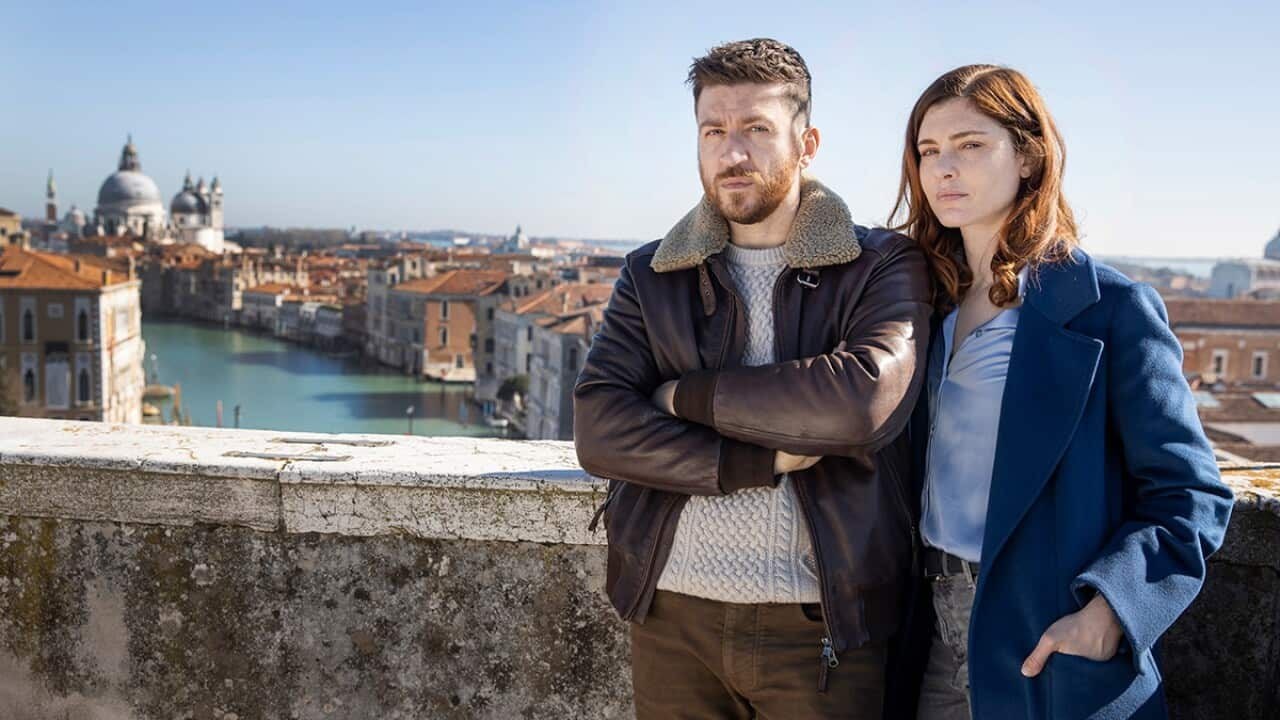It all starts with Beowulf. Without the thousand-year-old epic poem, fantasy as we know it in the West doesn’t exist. Lord of the Rings? Game of Thrones? Those battered paperback novels with people waving swords on the covers that you find in the corners of op shops? They’re all inspired by the saga contained in the oldest known poem in Old English. Which is a little surprising, as historians largely agree that Beowulf is as much an accurate record of its time as it is a story with a dragon in it.
Beowulf seems to make it very clear on what side of the line between fact and fantasy it lies with its opening scene, when a young Beowulf and his father flee on horseback from a pair of obviously not-human trolls. Other retellings of Beowulf often try to downplay the monstrous creature element of the story, and to be fair both the monstrous Grendel and his lethal mother are kept a little vague in the original (it's not until the dragon appears at the poem's end that we're firmly in the realm of the fantastic). Here, monsters are just a part of life, and these trolls are just the start.
The thing is, Beowulf the poem is also a historical document. Beowulf himself only ever appears in the poem that bears his name (no spin-offs for him), but many of the other characters are mentioned in other documents and records. The clans in the poem are believed to have been actual clans, and some of the battles were almost certainly real battles. It's generally believed that Beowulf is a poem written in part using figures from history and actual locations to add accuracy and believability to the more out-there elements: just call it the Vikings of its time.
This version begins with brave but banished warrior Beowulf (Kieran Bew) returning with his sidekick Breca (Gísli Örn Garðarsson) to the kingdom of Herot to make peace with his dying adoptive father, King Hrothgar (William Hurt). Hrothgar was a real king, even if in this version he rules over The Shieldlands rather than a specific corner of what is now Denmark. Or rather, he used to: Beowulf soon learns that Hrothgar is dead and his wife Rheda (Joanne Whalley) sits on the throne. She wasn't a big fan of him before, and with her son Slean (Ed Speleers) around, what use does she have for a wandering hero? As it turns out, quite a bit, even if she would rather see him dead. Her current leadership is only temporary, as the other local Thanes (lords) are on their way to choose a new Jarl (king). Which makes it more than a little inconvenient to have a murder take place almost as soon as she takes over, even if Beowulf does make for a handy suspect. There's no doubt that Beowulf is going to track down the real killer, but with monsters on the loose – including a shape-shifting variant known as skin-shifters, who can look like anyone – catching whoever did it isn't going to be easy.
As it turns out, quite a bit, even if she would rather see him dead. Her current leadership is only temporary, as the other local Thanes (lords) are on their way to choose a new Jarl (king). Which makes it more than a little inconvenient to have a murder take place almost as soon as she takes over, even if Beowulf does make for a handy suspect. There's no doubt that Beowulf is going to track down the real killer, but with monsters on the loose – including a shape-shifting variant known as skin-shifters, who can look like anyone – catching whoever did it isn't going to be easy.

Rheda (Joanne Whalley) Source: SBS
There are some interesting rules around the monsters (skin-shifters can’t be burned, which sets up a test that most people would rather avoid), while the political subplots are convincingly twisty. One of the other lords is Rheda's brother, which deepens the family dynamic of the series, especially as Slean rapidly develops beyond the surly step-brother he initially seems to be. The supporting cast are quickly fleshed out too, including the local healer Elvina (Laura Donnelly from Outlander) and the mother–daughter blacksmith team of Lila (Lolita Chakrabarti) and Vishka (Ellora Torchia). Fantasy has come a long way in recent years, with lavish sets, stunning locations and convincing monsters now the norm. Court intrigue and gripping fight scenes have become the mainstay of the genre; distinctive characters and a decent sense of humour don't go astray either. Vikings set the bar high for this kind of television, and a lot of series have stumbled in its wake.
Fantasy has come a long way in recent years, with lavish sets, stunning locations and convincing monsters now the norm. Court intrigue and gripping fight scenes have become the mainstay of the genre; distinctive characters and a decent sense of humour don't go astray either. Vikings set the bar high for this kind of television, and a lot of series have stumbled in its wake.

Elvina (Laura Donnelly) Source: SBS
Beowulf has learned its lessons well, especially the one about starting out with strong source material. If you want dark ages history with a supernatural twist, there's no better place to begin than the poem that started it all – and even in this version, where you have Beowulf you can rest assured that Grendel and his mother aren't all that far away.
Follow the author
YOU MIGHT ALSO LIKE

'The Handmaid's Tale' season 5 teaser pits June v Serena





